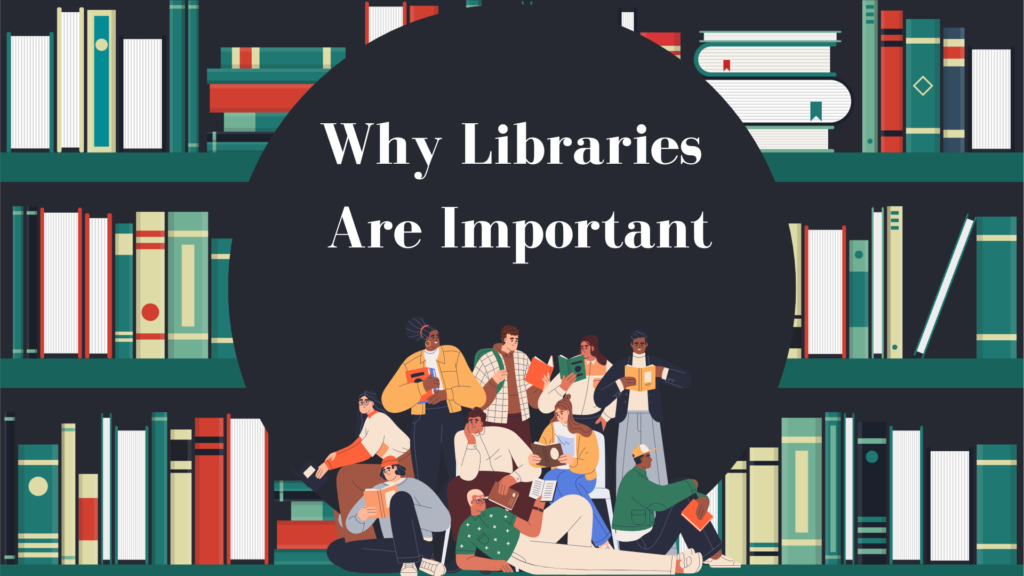
When I was a child, every summer was spent at the library. Libraries were the backdrop of some of my fondest childhood memories. The hot summer nights I spent watching movies on the cool, grassy lawn that overlooked the small pond in front of the library, the air conditioned play rooms filled with toys that were just as fun as they were enriching, and the countless books that filled the space all made the library nostalgic and important to me. My comforting and bountiful memories of the library are why I was so shocked to learn about the alarming number of social media users who think libraries no longer hold any value. According to an article in National Review written in 2021, many people seldom go to the library at all. With the rise in the digitalization of books, this viewpoint isn’t rare to come across. People are able to download any book or movie they’d normally get from a library and they can look up any information they might need online without having to interact with additional people. However, libraries are so much more than spaces that house books and other resources. At their core, they are community centers.
One of the main reasons my family and I have always loved using a library is because of the sheer amount of resources and activities they have to offer free of charge. People who are new to their towns are able to go to their library and learn about what the area has to offer with the help of the wonderful librarians who work there. Not only do I remember some fun events my library hosted for the community when I was younger, but I also got to see the more logistical side of it when I spent my time helping the librarians plan and organize community events. Everything from a library book festival (Libcon) to arts and crafts or trivia night were all hosted by the library to help people spend time with members of the community for free. At these events, I saw the seeds of new friendships being planted, which is so necessary regardless of age.
Libraries can also provide a very important connection to education for the community. I remember participating in my local library’s summer reading challenge annually. Incentivized with some type of prize, I would almost always be eager to read in some way or another, which ultimately helped me in the long run since I used to struggle to read in early elementary school. There were also plenty of events that encouraged proper manners and fine motor skills in younger children, such as themed crafts that corresponded with a book read at storytime or group play times where parents from the local community were encouraged to bring in their kids to meet other children in their age range.
No matter what technology arises, libraries still hold value as a “third place.” In sociology, the phrase “third place” is a term that refers to a safe place that is not home nor the workplace (or in a child’s case, school). These places are extremely important for cognitive development and mental health, and the library offers the perfect balance for both. There is no pressure to buy anything, there are an endless amount of things someone can do, and the community created by libraries can uplift those who are struggling. Because of this community, libraries are also the perfect safe space for children, teens, and adults to affirm their own identities. It can be stressful when people experience unsafe conditions at home, and a workplace or educational institution can only provide so much—which is why the library remains so valuable.
Source Referenced:
Abrams, Samuel J. “What Are the Real Third Places?” National Review, National Review, 12 Dec. 2021, www.nationalreview.com/2021/12/what-are-the-real-third-places/.
Vanshikha Vij, Pine Reads Review Writer